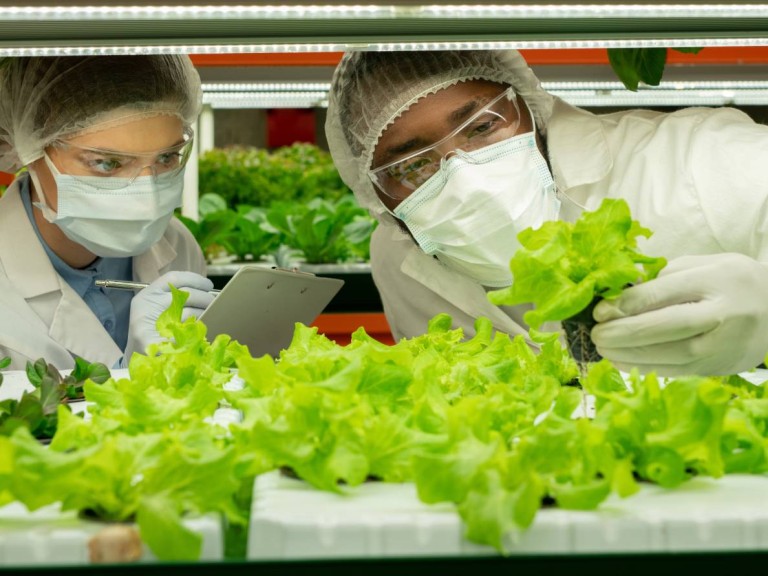In 2011, a new concept was introduced to the food industry. The Food and Drug Administration (FDA) felt that employees working in the food industry should understand how to perform their jobs correctly and understand how their role impacts food safety. The FDA introduced the new term “competent and qualified individuals.” Additionally, with the Preventive Controls Rule and its requirement for a Preventive Control Qualified Individual (PCQI), food producers are forced to develop and implement food safety plans that are written and developed by a PCQI. Essentially, FDA wants every food producer to have a food safety plan that is written and implemented by a competent and qualified individual. Becoming a PCQI is a huge achievement both individually and for a company. It shows that you have taken proactive steps to protect your brand, your customers, and to comply with federal regulation. Global Food Safety Consultants has partnered with Alchemy Academy to offer you a blended course that satisfies the FDA and secures the safety of your company. In the following sections, we are going to explain everything you need to know about PCQI certification and how it can help protect your brand.
A Preventive Controls Qualified Individual is a valuable addition to your company. Most associate a PCQI with a Food Safety Manager or other member of the food safety department. Some of our most successful clients have pushed against this status quo and it has paid off ten-fold. Members in the food safety department and their PCQI certification is important, however, integrating this requirement into other departments has helped our customers achieve food safety success in ways we never imagined. Investing resources in this way improved employee compliance, inter-departmental collaboration and served as the foundation for the integration of a food safety culture. Using PCQI certification as a tool for educating members of different departments improved the understanding of food safety concepts throughout all levels of the organization. The competence expressed by the organization at all levels was powerful and boosted confidence in the food safety program. I know I keep repeating the same ideas, but what we observed was incredible and I wanted to share this success with you. Okay, lets get back to what a PCQI really is and how they can add value to your organization.
What is a PCQI
Like I said earlier, this term of competent and qualified Individuals was introduced with FSMA. The concept behind this term was to assure people filling certain job roles understand what they are doing and how they contribute to the success of the organization. Specifically, when the Preventive Controls Rule was introduced it carried a requirement for a Preventive Controls Qualified Individual. Essentially, we need a competent and qualified person in the Preventive Controls Rule to help us comply with the Preventive Controls Rule. FSMA made it mandatory through the Preventive Controls Rule for virtually all food producers to build and integrate a food safety plan into their business. This plan must be written and implemented by a PCQI. A PCQI is “someone who has successfully completed certain training in the development and application of risk-based preventive controls or is otherwise qualified through job experience to develop and apply a food safety system.” By the book, a PCQI is responsible for assessing the hazards associated with the process and using preventive controls to reduce or minimize hazards to an acceptable level. Basically, the PCQI is responsible for building and integrating a food safety plan. A PCQI doesn’t necessarily have to have the 3-day training course completed through the Food Safety Preventive Controls Alliance (FSPCA). A PCQI may be able to demonstrate competency through other means. Without proof of attending the 3-day training, an FDA inspector may question the person responsible for developing the program to assess competency through their responses. The inspector may ask questions about how the hazards were analyzed, where they got their information, and probe specific processes the company performs. Through those responses and associated experience, one may qualify as a PCQI without the formal training. Additionally, it is important that the PCQI demonstrates knowledge of the Preventive Controls Rule.
HACCP and HARPC
Most confuse the Preventive Controls Rule and its requirement for a HARPC Plan with the industries requirement for HACCP plans. HACCP and HARPC are different in their application and their terminology. FDA will expect to see a plan that matches their requirements rather than that of Global Food Safety Initiative (GFSI) or those imposed by your customers. Regardless of how your plan is laid out, the PCQI will need to review current programs, make amendments, and finalize changes to assure all interested parties are satisfied.
How to Become a PCQI?
A PCQI holds responsibility for assuring the business is compliant with the Preventive Controls Rule; but how does a company obtain a PCQI? Well to start, FDA allows food companies to hire consultants such as GFSC, to write and implement their food safety plans. Professional food safety experts should develop and implement your food safety plan, but this is not your only option. A food company may hire an employee that is already a PCQI or able to demonstrate competency in the Preventive Controls Rule and use that to satisfy the requirement. The most common route for compliance is to send one of your team members or a group of team members to get PCQI certification. The FSPCA has a standardized curriculum for a 3-day course that is accepted by FDA. Many different training organizations offer this training and are accredited to issue certification. As mentioned before, we have partnered with Alchemy Academy to assure our followers have a resource for accomplishing this task. You can see our partners course here. This blended e-Course is broken up into 2 parts. The first part is a self-paced online course that you complete on your own time. After completion, you will have access to part 2. Part 2 is an online instructor-led course. As you progress through this part, you will have access to a professional that can answer your questions and help guide you and your company to compliance.
Regardless of which training center you choose, the course will cover at minimum:
cGMP and Prerequisite Programs
As part of the standardized curriculum from the FSPCA, educators will teach you the foundational aspects of current Good Manufacturing Practices (cGMP) and Prerequisite Programs. Prerequisite Programs and cGMPs can be thought of as programs or requirements necessary to secure the sanitary environment for which food is produced. We won’t dive too much further into these subjects but if you would like to learn more about cGMP and Prerequisite programs feel free to schedule a free consultation.
Food Safety Plans
The primary requirement of the Preventive Controls Rule is the development of a Food Safety Plan. A food safety plan includes a HARPC Plan including supply-chain controls, and a recall plan. Follow the link above to learn more about the specific components of a Food Safety Plan.
A PCQI is a valuable addition to your business. They can assure you remain compliant with federal regulations but more importantly serve you to protect your brand and your customers. For more information about our training partner and their trainings, Click Here.
Every year, food safety incidents cost the food industry over $55 billion. Global Food Safety Consultants is a group of expert food safety advisors with experience in all sectors of the food supply-chain. We are seasoned professionals that have helped hundreds of companies achieve food safety success. GFSC can help you achieve your food safety objectives. GFSC, your partner for all thing’s food safety.





